featured
Attorneys General Group Hosts Meeting On State-Level Regulation Of Intoxicating Hemp Products
Published
2 months agoon
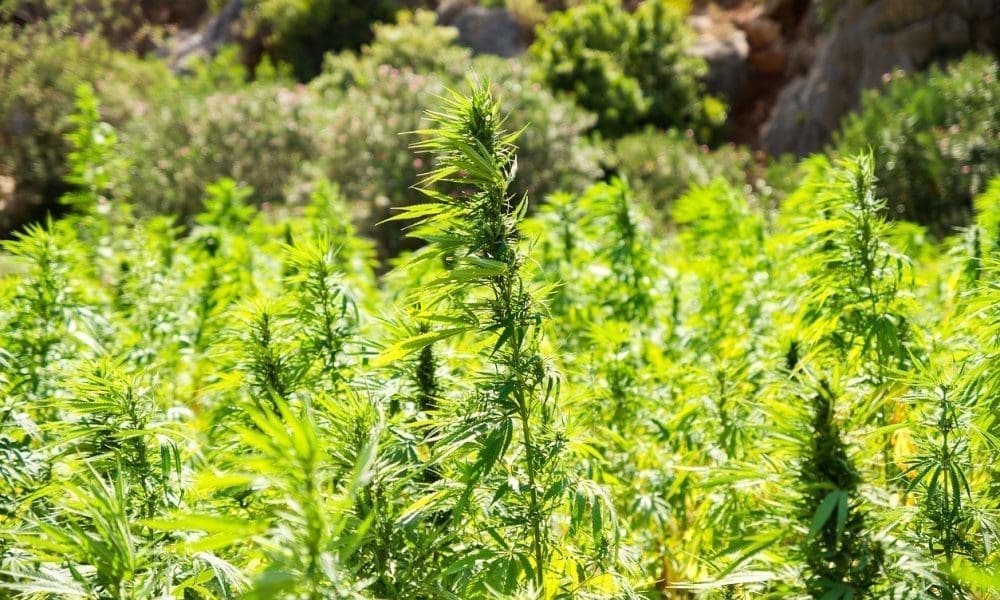
Current and former state officials, advocates and business representatives met last week to discuss the legal landscape around hemp-derived cannabinoid products, including what led to the explosion of intoxicating products across the country, potential harms posed by the largely unregulated market and how policymakers are moving forward amid the uncertainty.
Hosted by the Attorney General Alliance (AGA), a nonprofit that represents state attorneys general, the June 4 webinar featured current and former officials from Oregon, Florida, California and Nevada as well as representatives of business and advocacy groups.
The presentation, “Illicit Hemp-Derived Intoxicants: State Enforcement Mechanisms and Challenges,” was part of AGA’s Cannabis Project, which the group says “seeks to provide interested parties an opportunity to dialogue on how cannabis legalization might preserve public health and safety, protect consumers and ensure the rule of law, while also respecting the role of states to innovate and experiment as laboratories of democracy.”
Since Congress passed the 2018 Farm Bill, which legalized hemp nationwide, largely unregulated products containing not only CBD but also psychoactive THC—which the Farm Bill sought to limit in hemp products—have proliferated online and at storefronts across the country.
That, speakers said, has allowed broad access by minors to intoxicating products, caused confusion among law enforcement—who often struggle to tell legal hemp products apart from federally illegal marijuana—and undercut state-regulated medical and adult-use cannabis markets.
At the state level, policymakers are now taking steps of their own to rein in the products, though often with different approaches.
In 2023, said Chris Lindsey, director of state advocacy and public policy at the American Trade Association for Cannabis and Hemp (ATACH), only about eight or nine states had laws on the books around hemp-derived cannabinoids. Since then, he explained, “we’ve seen states rush in to this space.”
“Around 41 [states] actually have laws on the books now that try to address it,” Lindsey noted. “Of course, those laws are inconsistent. They’re all over the board. They’re taking different approaches. But it speaks to the fact that lawmakers and regulators are now a much more attenuated to the challenges, the terminology, the different loopholes that have occurred.”
Multiple states—from California to Florida—have moved to ban intoxicating cannabinoids in recent months. In Texas, the legislature recently delivered a bill to the governor that would outlaw all consumable hemp-derived cannabinoid products containing any detectable THC.
Erin Williams, an assistant attorney general in Oregon’s Department of Justice who was not speaking on behalf of the agency, said AGs’ offices can also “rely on their credibility as the top legal agency in their state to seek federal change,” referencing a 2024 letter sent by 21 state AGs calling on federal lawmakers to amend the federal definition of hemp.
“As Congress prepares to embark on a new five-year reauthorization of the Farm Bill,” that letter said, “we strongly urge your committees to address the glaring vagueness created in the 2018 Farm Bill that has led to the proliferation of intoxicating hemp products across the nation and challenges to the ability for states and localities to respond to the resulting health and safety crisis.”
As federal lawmakers consider changes—a congressional committee earlier this month approved a bill that would ban all hemp products containing THC—Williams said attorneys general can also take other steps to limit possible harms, for example by issuing advisory opinions, offering guidance to lawmakers and targeting false claims under their consumer protection authority.
One ongoing obstacle, she pointed out, is that it’s typically easier for state regulators to enforce laws against in-state companies compared to manufacturers of products sold online.
Other speakers acknowledged that vagueness in the Farm Bill may have unintentionally created the intoxicating hemp market but said that getting a handle on the products required more than merely taking enforcement actions against hemp products, as some jurisdictions have sought to do.
“I see some of the same mistakes being made in the hemp environment across the states and at the federal level, because we have either either under-regulated the product or over-regulated hemp products,” said Diane Goldstein, a retired police lieutenant and chair of the Law Enforcement Action Partnership (LEAP), likening the approach to the early days of marijuana in California, which she described as the Wild West.
The hemp market is now similarly in its infancy, Goldstein said, “and law enforcement is having a really difficult time discerning who’s the good actor and who’s the bad actor.”
“We need some clear directions so we don’t sweep people up into the criminal justice system for products that are potentially technically legal,” she urged, encouraging policymakers to seek out best practices and craft thoughtful policy.
Michelle Minton, senior policy analyst at libertarian think tank the Reason Foundation, explained model legislation she’d developed for possible use by state officials. Much of the current situation around hemp products, she contended, stems from broader bans on marijuana.
“The root cause, as far as I see it, as we see in my organization, is actually marijuana prohibition that still exists at the federal level,” Minton said.
“Most of the consumers who are pursuing these products don’t want a ‘marijuana-like product,’” she said. “They want marijuana, but for whatever reasons, they don’t have adequate access to those legal marijuana products.”
Among the policy recommendations in the model legislation are to allow most forms of cannabis products—including flower, vape products and edibles and beverages, Minton said. Products would be tested, labeled and available only to consumers 21 and older.
“Most hemp cannabinoids should remain legal as well, including the ones that are sometimes called synthetic or synthesized,” she continued. “But then we kind of left leeway for the states to prohibit truly artificial cannabinoids, the ones that do not naturally occur in in cannabis plants.”
The goal, she said, was to close loopholes that allow a lot of unregulated products to be flowing through the market.”
“If a model like this were implemented,” Minton concluded, “this should come with similar reforms on the marijuana industry, so that they can feel slightly more lightly regulated [and] have fewer costs.”
Many state-licensed cannabis companies have complained that intoxicating hemp products unfairly compete with marijuana because they aren’t subject to the same degree of regulation and typically are taxed at lower rates.
Another speaker, Kelly Vance, assistant director of the Division of Food Safety at the Florida Department of Agriculture and Consumer Services, noted the difficulty of drawing a hard line between naturally occurring and synthesized cannabinoid products.
“You can look at the molecular structure of delta 8 [THC] and heroin, they’re not terribly different,” he said. “So if you make the argument—and successfully—so that you can take CBD, convert it to delta 8, and it’s legal under the Farm Bill. You take it three, four, five, 10 more steps in a laboratory and create heroin. Did you just legalize heroin under the same argument?”
During a short Q&A portion of the webinar, an audience member asked whether only retailers with liquor licenses should be able to sell intoxicating hemp products—a position some alcohol trade groups have endorsed.
“I would say that any retailer that is permitted or licensed to sell age gated adult products, and is that has shown to do that effectively, should be able to sell a another type of adult intoxicating product,” Minton at the Reason Foundation replied, “and then you still have the control of, if they’re failing to appropriately age gate, you can strip them of their permit or license.”
Asked to look into the future, speakers said they expected Congress to attempt to close the hemp loophole.
“I’m lobbying Congress on that issue, so I am confident that Congress will close the loophole,” said Lindsey at ATACH, “if for no other reason [than] that there are no other products in the United States that run free.”
Even water is regulated once it falls from the sky, Lindsey added. “They are going to regulate intoxicants from hemp. It’s a matter of when.”
With recent sign-off from a congressional subcommittee, the latest legislation that would ban intoxicating cannabinoids now proceeds to a full House committee for consideration.
The 138-page bill covers a wide range of issues, but for the hemp industry, there’s a section of particular concern that would redefine hemp under federal statute in a way that would prohibit cannabis products containing any “quantifiable” amount of THC or “any other cannabinoids that have similar effects (or are marketed to have similar effects) on humans or animals” as THC.
Rep. Andy Harris (R-MD), chair of the subcommittee, said in opening remarks that the legislation “closes the hemp loophole from the 2018 Farm Bill that has resulted in the proliferation of intoxicating cannabinoid products, including delta-8 and hemp flower being sold online and in gas stations nationwide under the false guise of being ‘USDA approved.’”
“As many states have stepped in to curb these dangerous products from reaching consumers, particularly children, it’s time for Congress to act to close this loophole, while protecting the legitimate industrial hemp industry,” he said.
That would effectively eliminate the most commonly marketed hemp products within the industry, as even non-intoxicating CBD items that are sold across the country typically contain trace amounts of THC. Under current law, those products are allowed if they contain no more than 0.3 percent THC by dry weight.
The hemp language is largely consistent with appropriations and agriculture legislation that was introduced, but not ultimately enacted, under the last Congress.
Hemp industry stakeholders rallied against that proposal, an earlier version of which was also included in the base bill from the subcommittee last year. It’s virtually identical to a provision of the 2024 Farm Bill that was attached by a separate committee last May via an amendment from Rep. Mary Miller (R-IL), which was also not enacted into law.
“If this amendment becomes law, it will destroy the entire American hemp industry and set back a decade’s worth of progress to fully legalize cannabis,” Jim Higdon, co-founder of the Kentucky-based company Cornbread Hemp, told Marijuana Moment. “Democrats and Republicans who believe in freedom should oppose Rep. Harris’s attack on American hemp farmers.”
Meanwhile, alcohol industry representatives descended on Washington, D.C. in April to urge members of Congress to create a federal regulatory framework for intoxicating hemp-derived products such as cannabinoid-infused beverages—a market segment that’s ballooned since the legalization of hemp through the 2018 Farm Bill.
A report from Bloomberg Intelligence (BI) last year called cannabis a “significant threat” to the alcohol industry, citing survey data that suggests more people are using cannabis as a substitute for alcoholic beverages such a beer and wine.
Last November, meanwhile, a beer industry trade group put out a statement of guiding principles to address what it called “the proliferation of largely unregulated intoxicating hemp and cannabis products,” warning of risks to consumers and communities resulting from THC consumption.
Photo courtesy of Pixabay.

Author: mscannabiz.com
MScannaBIZ for all you Mississippi Cannabis News and Information.
You may like
-
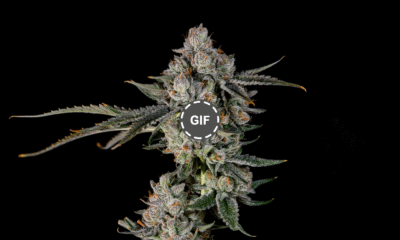

High Times Strains Of The Month: August 2025
-
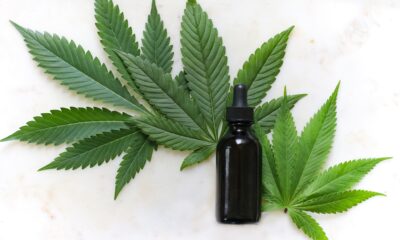

Texas Crime Labs Say They Don’t Have Enough Resources To Test Hemp Products For THC As Lawmakers Consider Ban
-


Trump on changes to marijuana policy: 'We're looking at it'
-


Realtors’ Stolen Credit Cards Are Used to Build an Illegal Marijuana Farm
-


Grady County Sheriff's Office makes arrests in illegal marijuana bust
-
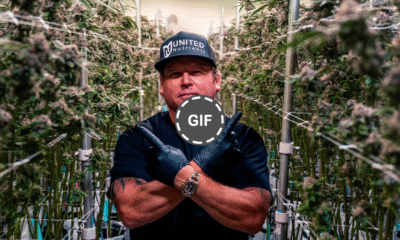

High Times Was The Most Influential Publication Of My Life
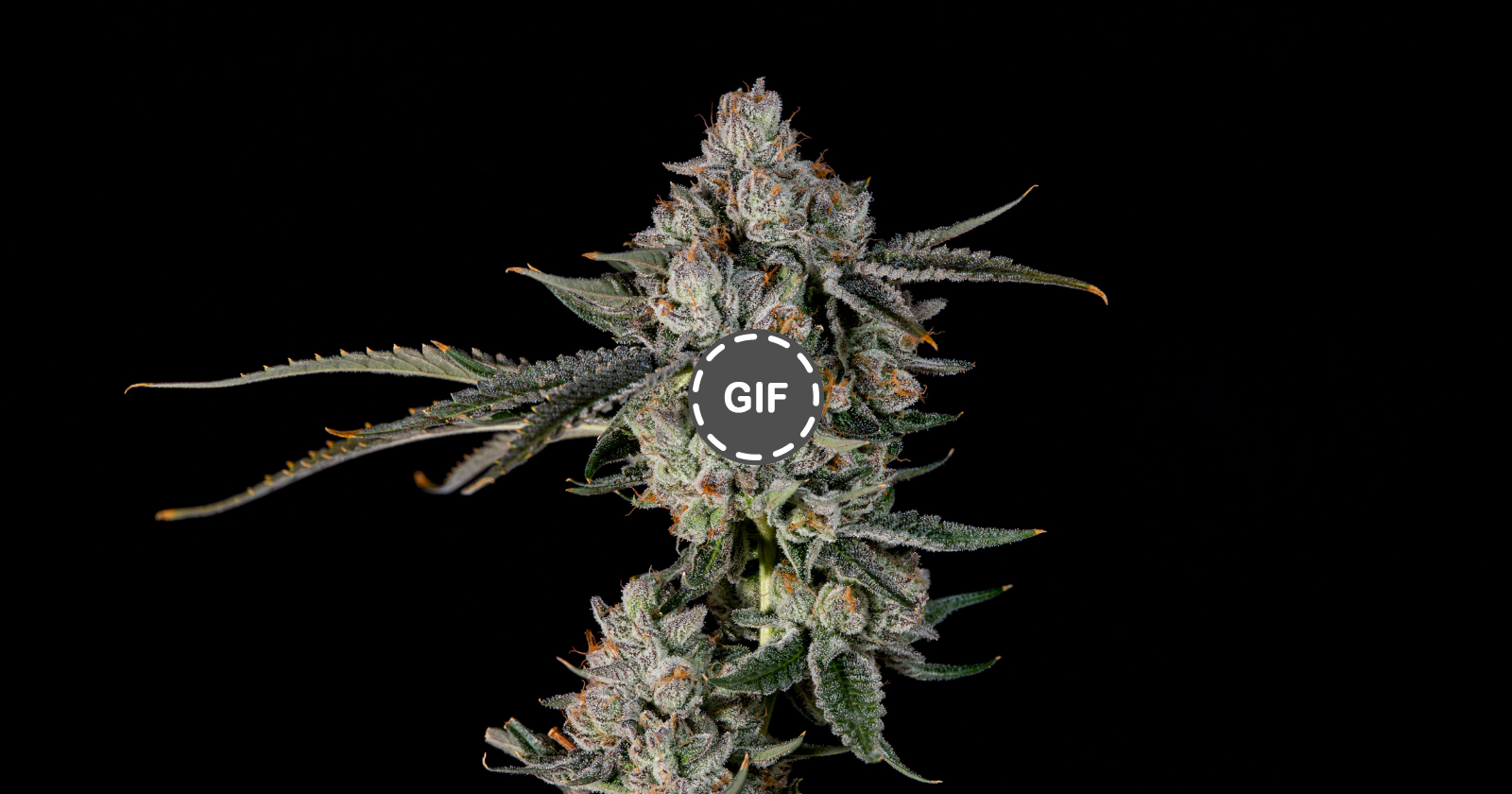
We have a lineup of absolute hitters to help you celebrate August in our High Times Strains of the Month. Whether you’re looking for fuel, candy, or Z, this group of strains is sure to have something in your wheelhouse.
This list is a celebration of great genetics grown well and we hope you’ll have a chance to get your hands on some of these offerings.
PINK DIRT – Jeu Green
(Skunktek Sour Diesel x ECSD/Stardawg x Sour Face)

Jeu Green, who took top honors at The Billys in New York City this year, has added another hitter to his stable. DIRT enthusiasts will be thrilled with this new offering he found in a pack of Sour Skunkface seeds by Skunk and Sour (@skunkandsour).
“Massachusetts breeders got heat,” Green told High Times.
Green started the phenohunt on a quest to find pink weed. When he was younger, his father got a big bag of crazy pink weed that was considered an “herban legend” around his hometown and talked about for years. He only popped 12 seeds, but he found the traits he was looking for on the selection he made with its pink pistils and tight bud structure standing out to the award-winning grower. Green emphasized that even though it was a small phenohunt, sometimes those special cuts find you.
Green is a gas enthusiast when it comes to his preferred flavor profile for cannabis and the PINK DIRT certainly checks that box. Green noted there are also some pink lemonade undertones and the total package will leave a sour mouth coat. As with other fuel-heavy strain profiles, the impact is definitely there. Green argues she has a bit of a creeper high that will get you if you sleep on her.
“Everything I do is DIRT and she is the pink one like Kimberly, the pink Power Ranger,” Green said.
Green is the only one in possession of the PINK DIRT.
Brainwash – Alien Labs x Talking Terps
(Z x Oz Kush #18)

Brainwash came from a 60-seed phenohunt done by Alien Labs following a breeding project at their Sacramento facility. Alien Labs founder Ted Lidie told High Times the winner was selected for its OG-like flavor that hits a midway point and turns to candy Z. Another factor in the selection was how much impact the strain has, which can sometimes be lacking in Z crosses.
“Its proximity to a true OG with something different inside the nug,” Lidie said, “Z is there but ephemeral. The OG really sticks with you.”
The pairing has proved very successful out of the gate. It recently took home top honors in Proper Doinks’ inaugural Arizona bracket against a bunch of hitters. It was recently Alien Labs’ top-selling strain for a couple of months in a row. All in all, it’s been a big success for Alien Labs and their friends at Talking Terps for their first-ever collaboration.
The name came easily, according to Lidie, it’s a reference to washing your brain. He noted that it fits with Talking Terps branding, current culture and has multilayered meaning like a lot of Alien Labs strain names.
Alien Labs is the only cultivator in possession of the strain. Also, don’t sleep on the California batches. They definitely share the same quality as the award-winning rendition coming out of Arizona.
Zunicorn – Zero Gravity Exotics
(Z x TMZ (Z x Candy Fumes (Z x Sherbanger)

Zunicorn is a standout pheno of World War Z bred by Bloom Seed Co. and cultivated by Zero Gravity Exotics in Oakland, California. In a world where new Z crosses are popping up on an almost monthly basis, the Zunicorns is a fantastic offering that jumps out of the jar with an even sweeter nose that’s arguably a little bit louder than the original Z. The extra sweet notes on top of the Z dominant profile are a result of the Candy Fumez in its lineage.

The Zero Gravity team picked up the seeds at Ego Clash 2025 and popped them immediately. While they only had six seeds to hunt through for winners, they ended up finding multiple keepers. The Zunicorn got its name from being the unicorn of the pack.
Their selection grows very similar to Z, but they believe it to be a bit more commercially viable, given its slightly improved vigor, structure, and look. Zero Gravity Exotics are the only cultivators currently in possession of the cut.
Zangbanger – Wizard Trees
(Sherbanger #22 × Zangria)

While originally Wizard Trees was most associated with elite cannabis flower, their recent lineup of hitters has turned the brand into one of the most sought-after breeders on the planet. This was further confirmed by the massive lines in Barcelona and Berlin this year as people hoped to get their hands on the lineup of genetics that’s very much proven to offer an excellent pairing of commercial viability and quality smoke.
Expect the Zangbanger to only add to the hype. The winning phenotype beat out other top-tier keepers from the Zangria line, including Gas Gimlet and Zoza, which are still monsters in their own right.

The selection was made purely on smoke quality according to the Wizard Trees team. They argue the insane blueberry terpene profile stains your mouth even more than Z. That’s not too much of a shocker, given Zangbanger has been testing at a consistent 4.5% to 5% terpenes. That is a massive number, Scott from Wizard Trees noted, even his best strains rarely hit 4%.
The loud candy-blueberry nose translates perfectly to the flavor of the experience. And you’ll enjoy those notes all the way through the joint, given how loaded it will be with terpenes.
Photos courtesy of their respective growers

Author: mscannabiz.com
MScannaBIZ for all you Mississippi Cannabis News and Information.
featured
Texas Crime Labs Say They Don’t Have Enough Resources To Test Hemp Products For THC As Lawmakers Consider Ban
Published
5 hours agoon
August 17, 2025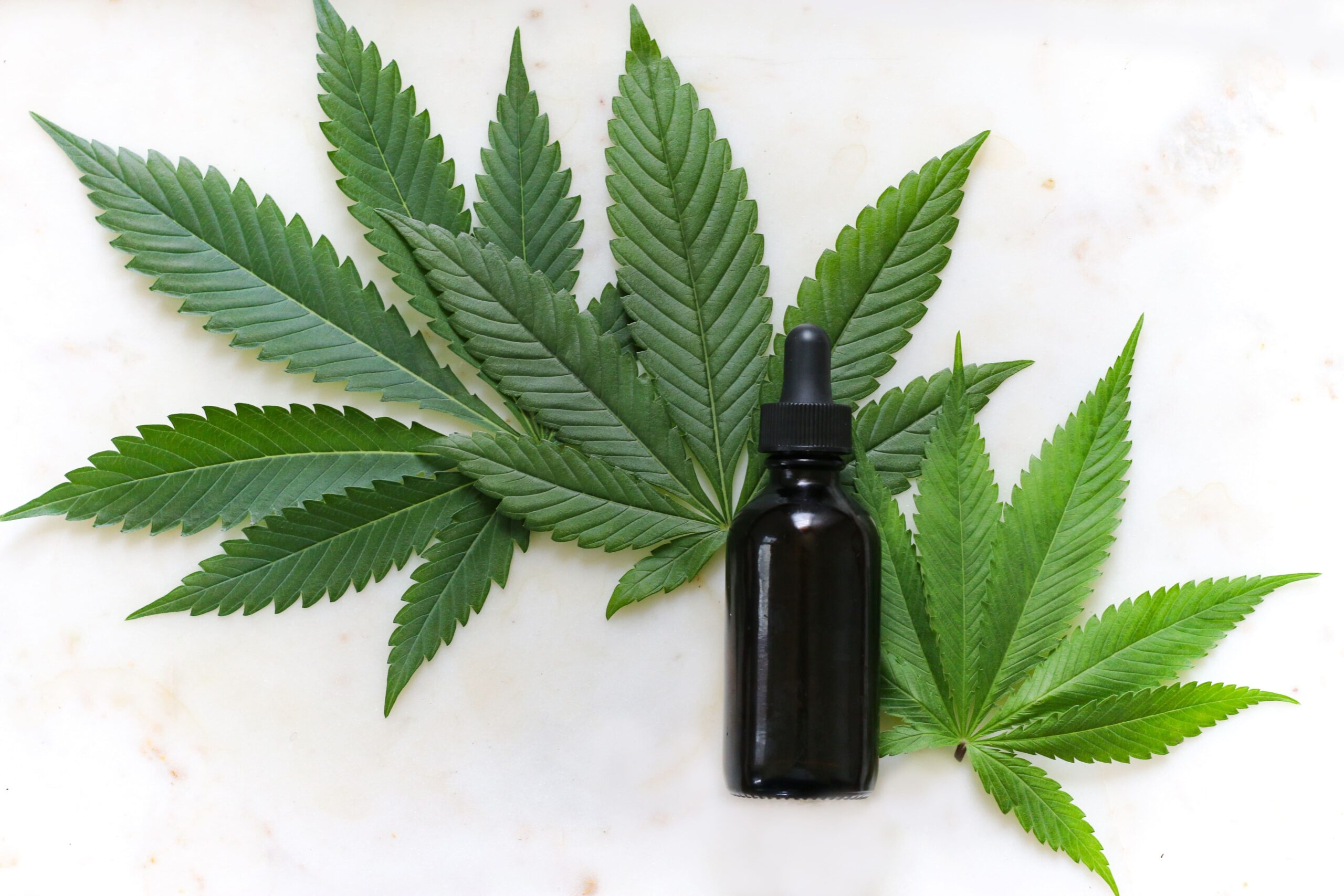
“I’m going to prioritize the fentanyl before hemp, and every dollar I spend on testing drugs is a dollar I don’t have to spend on testing a sexual assault kit.”
By Stephen Simpson, The Texas Tribune
As Texas lawmakers debate whether to regulate or ban THC products, officials with the state’s crime labs say they don’t have the resources currently to enforce whatever law is passed.
“From a crime lab perspective, mercifully, we don’t have a dog in that fight. I really don’t care. Just tell me what I need to test, and then I need resources to be able to provide that result,” Peter Stout, president and chief executive officer for the Houston Forensic Science Center, told The Texas Tribune after he testified before the House Public Health Committee on Wednesday. “Otherwise, I become the reason the wheel falls off this wagon, which has basically been the last six years now.”
Wednesday’s committee hearing centered on House Bill 5, which would create a blanket ban on products containing any “detectable amount of any cannabinoid” other than cannabidiol and cannabigerol, better known as CBD and CBG, non-intoxicating components of cannabis. This bill would eliminate the majority of hemp products, including those that are legal under the federal definition.
”There’s been countless reports of artificial and synthetic cannabinoids and their effects on the consumer, and these products have become readily available,” said Rep. Gary VanDeaver, R-New Boston, the committee’s chair and HB 5’s author. “Some of these products are marketed in a way that is attractive to children, for example common food products, like candy.”
The Senate’s version of the bill also calls for a ban, but since Gov. Greg Abbott (R) earlier this year vetoed similar legislation that would have banned THC, some lawmakers have signaled they’d support more regulations over a ban.
Kim Carmichael, spokesperson for House Speaker Dustin Burrows, R-Lubbock, told The Texas Tribune that the House hasn’t committed to a ban.
“HB 5 was filed as a similar bill to what the House passed in the regular session, because that’s the most logical starting point for negotiations,” Carmichael said. “Since it passed in that form, members believed they should resume debate where it ended up. It would still go through the process of a public hearing and floor debate, so where it ends up is unknown at this time.”
Experts invited by lawmakers on Wednesday to talk about THC largely focused on the health dangers of THC, the possible criminal networks that underlie the industry, and the impossible task of enforcement.
Alice Amilhat, assistant chief of the crime laboratory division for the Texas Department of Public Safety, told lawmakers the DPS crime lab is equally overwhelmed with requests, and no matter what lawmakers decide, it will be an expensive process.
“I don’t have a financial statement for you, but if a ban goes through, the testing process will be easier, but the problem is we just don’t know if the caseload will increase as well,” she said. “We don’t know how many cases will come in, we don’t know how many seizures, we don’t know how much law enforcement will need our support.”
Crime labs in Texas have found themselves in a no-win situation on how to regulate THC. If a ban goes through, testing will be relatively easy because all crime labs need to determine is if there’s THC in the substance, but it will still mean more cases for them. Not banning, but regulating THC will also drive their caseloads up and the testing process can become more expensive and time-consuming if they have to spend time trying to detect permissible amounts of THC in substances. Both scenarios are unsustainable for crime labs, which are battling deadlier drugs, with the current resources they have.
“There are only 266 licensed drug chemists in the state,” Stout told lawmakers. “I’m paying attention to fentanyl, and when you guys get it figured out [with THC], then I will invest in equipment and other stuff for testing.”
Stout said crime labs across the state have backlogs on cases that reach hundreds to thousands deep, and compared to sexual assault and firearms cases, THC testing will be a lower priority.
“I’ve been pretty vocal that I’ve not made the investments to test hemp in Houston at the scale that we probably would need to, because I can’t keep up simply with the pills that have fentanyl,” he told the Tribune. “So yeah, I’m going to prioritize the fentanyl before hemp, and every dollar I spend on testing drugs is a dollar I don’t have to spend on testing a sexual assault kit.”
DPS handles about half of the forensic work in the state, and municipal, county, or regional labs handle the rest. Each has its source of funding that can be inconsistent, but none of it is enough, according to crime labs.
Stout said the average crime lab across the country gets around $600 in funding per case, when laboratories probably need $2,500 in funding per case to cover personnel, time, and equipment. He said that, beyond the money problem, the time-consuming nature of training is a concern, and there is no pool of licensed drug chemists waiting for a job.
“We have under-resourced forensic laboratories for so long, there is no pipeline or workforce,” he said. “The people aren’t there, and the money is not there.”
The ongoing challenges at crime labs have resulted in cases taking years to resolve. Crime labs have no control over their workload—whatever substance or case law enforcement decides to focus on will impact crime labs, whether they are ready for it or not.
“Okay, guys, you also need me to answer you on that sexual assault kit and that homicide, which ones do you want me to do first?” Stout said. “Because we can’t afford to do them all. Help me out here.”
Stout said crime labs need more money and time.
“And I get that is exactly the wrong answer, that nobody wants to hear. They want to give us a big pot of money and go on to other things, but it doesn’t work that way,” he said.
This article originally appeared in The Texas Tribune at https://www.texastribune.org/2025/08/13/texas-crime-labs-THC-hemp-ban-regulations/.
The Texas Tribune is a member-supported, nonpartisan newsroom informing and engaging Texans on state politics and policy. Learn more at texastribune.org.
Photo courtesy of Kimzy Nanney.

Author: mscannabiz.com
MScannaBIZ for all you Mississippi Cannabis News and Information.
featured
High Times Was The Most Influential Publication Of My Life
Published
1 day agoon
August 16, 2025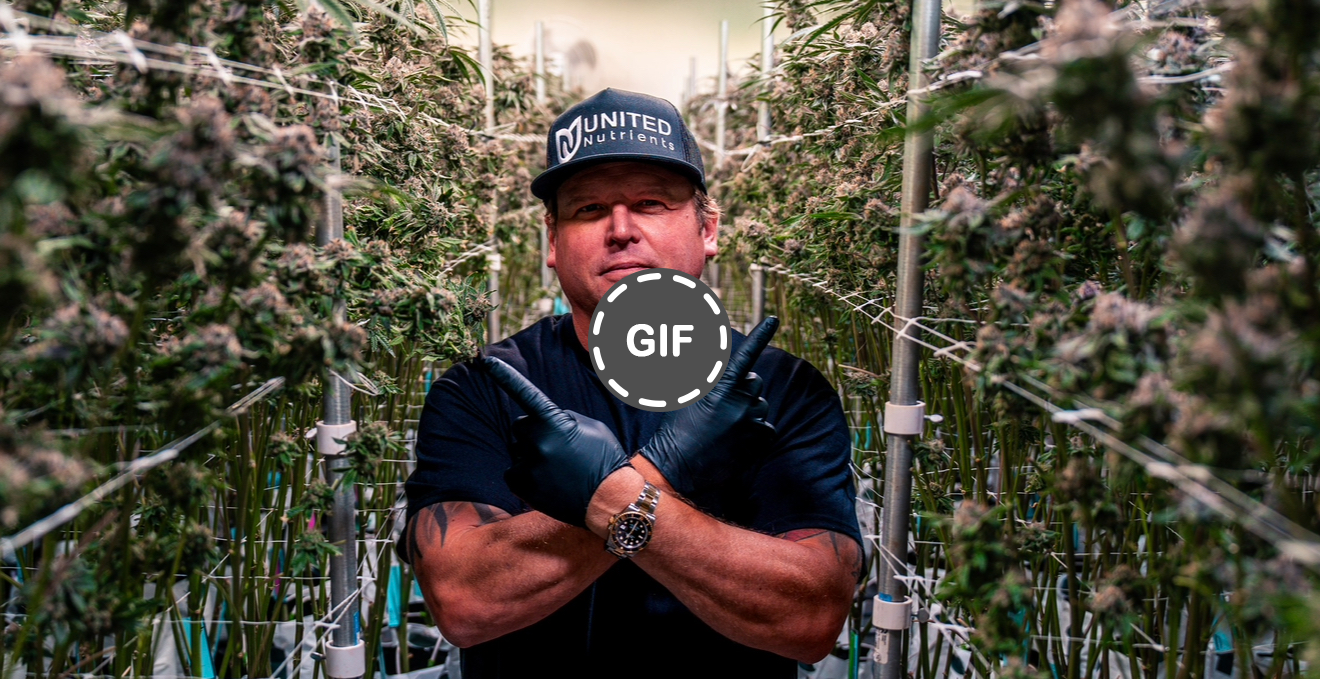
What does it mean to you? So often, we forget that each of us sees the world through a unique lens. While we may share an experience, our exact perspective is ours alone.
Many of us discovered High Times during different chapters of our lives. For me, it started in childhood. I grew up reading the magazine, drawn to its bold voice and rebellious energy. It inspired me. It offered a sense of freedom—and more than anything, it reassured me that I wasn’t alone in believing this plant made life better. Whether cannabis helped us feel balanced, feel whole, or simply feel good, High Times was a beacon for those of us who saw it as more than just a vice.
Today, cannabis is often framed as a safer alternative to alcohol or tobacco. While that may be true, that narrative feels incomplete. For those of us who came up in the culture, the plant was never just about harm reduction. Our early experiences weren’t driven by taste, branding, or appearance. They were about how it made us feel.
We smoked what we could get our hands on. Brown buds with stems and seeds—sometimes green, sometimes dry and dusty, sometimes damp and moldy. The names were basic or nonexistent. We called it green, brown, dirt, chronic, bammer. No one was posting nug photos or comparing flavor profiles to candy. We were in it for the high, for the relief, and for the connection.
For me, cannabis was a constant. Before school, at lunch, after school. We masked the smell with gum, sprays, and excuses. Everyone around me smoked. My friends, the dealers, the heads at shows, the random adults who still had a foot in the underground. Often, people sold just to afford their own habit. The culture grew organically from the lifestyle. And while we were getting high, we were also medicating—whether we called it that or not.
Cannabis is the most diverse cultivated plant on the planet. No other species has been shaped and selected into as many distinct types. It’s an adaptogen, and our bodies are equipped with cannabinoid receptors that allow the plant to affect us in complex and deeply personal ways. This is part of what makes it so difficult for doctors to prescribe in a conventional sense. One cultivar might energize one person and sedate another. Some feel calm, others paranoid. Its effects are influenced by body chemistry, food, mood, stress, time of day—even the weather. It is not one-size-fits-all.
High Times helped us make sense of that variability in the plant and the culture around it. It was the most influential publication of my life. I still have my collection from the early 1990s, each issue stacked with care and reverence. The article that captivated me most growing up was the “Million Dollar Grow Room.” Years later, I was honored to be featured in the second edition of that same article. That moment of reflection and recognition remains one of the defining highlights of my career.
Over the years, I’ve built lasting friendships with former High Times editors, writers, and photographers. These were true believers who helped shape the voice of the movement. Now, a new generation carries that legacy forward. And it is not a light burden.
High Times is more than a brand. It is a cultural institution. It carries the stories of survivors, visionaries, and revolutionaries. From Jack Herer to Michael Kennedy—from legalization architects to counterculture icons like Steven Hager—the magazine has always served as a platform for voices pushing against the mainstream. And we can’t forget the countless unnamed contributors, those who submitted stories and photos without credit or compensation, simply for the love of the plant and the mission.
The groundwork has been laid. But the story is still being written. The cannabis industry continues to evolve, and with it, our responsibilities. We owe everything to those who came before us. This plant has traveled across continents, passed from hand to hand, seed to seed. In the past seventy years alone, we’ve witnessed an explosion of cross selection and hybridization unlike anything else in agriculture.
High Times was a catalyst throughout that process. From the 1970s through the later part of the 2010s, it helped shape what the cannabis community would become. Much of what we see now in newer publications and across social media can be traced back to the culture that High Times helped nurture and protect.
I’m an optimist. I believe the best chapters are still ahead. The High Times name still matters. It still carries weight. It still represents something sacred. And if stewarded with care, it can continue to be a voice for the culture and a champion of the plant. The impact the brand has already made is immeasurable—but its potential is even greater. Our passion is real. Our connection is deep. And we are fortunate to be part of something larger than ourselves—part of a movement, part of a legacy, part of a plant that makes the world better, one person at a time.
This article is from an external, unpaid contributor. It does not represent High Times’ reporting and has not been edited for content or accuracy.

Author: mscannabiz.com
MScannaBIZ for all you Mississippi Cannabis News and Information.

High Times Strains Of The Month: August 2025

Texas Crime Labs Say They Don’t Have Enough Resources To Test Hemp Products For THC As Lawmakers Consider Ban

Trump on changes to marijuana policy: 'We're looking at it'

Realtors’ Stolen Credit Cards Are Used to Build an Illegal Marijuana Farm

Grady County Sheriff's Office makes arrests in illegal marijuana bust

High Times Was The Most Influential Publication Of My Life

Revelry NYC 2025: Inside New York’s Cannabis Culture & Industry Festival

Revelry NYC 2025: Inside New York’s Cannabis Culture & Industry Festival

Indian Tribes See Opportunity In Hemp THC Products, Even In States That Continue Marijuana Criminalization

Two Oakland cannabis dispensaries targeted again by ram-raiding burglars

Trump on changes to marijuana policy: 'We're looking at it'

Bill Maher Takes Credit for Possibility Trump Might Reshedule Marijuana

Social cannabis use rules will be published Friday

Over 2,000 plants uncovered at marijuana grow-op in Brantford – CP24

Mass. residents sound off on social marijuana use as rules are finalized – NBC Boston

Newly Posted Texas Medical Marijuana Rules Will Let Doctors Recommend New Qualifying Conditions For Patients

MNPD seizes pounds of marijuana, arrests man with 7 outstanding warrants

Can Cannabis Help Make The Brain Younger

Klutch Cannabis Opening 5th Ohio Dispensary in Northfield

Undercover video exposes illegal THC sales at North Texas vape shops

Book Review: The Traveling Cannabis Writer’s Guide to America’s Hidden Gems

WKRN: marijuana reclassification impact

Texas Senators Unanimously Pass Hemp THC Ban Bill Hours After Governor Convenes Second Special Session

New York’s cannabis agency allowed dispensaries to open too close to schools | Videos

Alert: Department of Cannabis Control updates data dashboards with full data for 2023

Connecticut Appoints The US’s First Cannabis Ombudsperson – Yes there is a pun in there and I’m Sure Erin Kirk Is Going To Hear It More Than Once!

5 best CBD creams of 2024 by Leafly

EU initiative begins bid to open access to psychedelic therapies
New Study Analyzes the Effects of THCV, CBD on Weight Loss

Free delta-9 gummies from Bay Smokes

5 best autoflower seed banks of 2024 by Leafly

Discover New York’s dankest cannabis brands [September 2024]

Curaleaf Start Process Of Getting Their Claws Into The UK’s National Health System – With Former MP (Resigned Today 30/5/24) As The Front Man

May 2024 Leafly HighLight: Pink Runtz strain

Mississippi city official pleads guilty to selling fake CBD products

Press Release: CANNRA Calls for Farm Bill to Clarify Existing State Authority to Regulate Hemp Products

Local medical cannabis dispensary reacts to MSDH pulling Rapid Analytics License – WLBT

Horn Lake denies cannabis dispensary request to allow sale of drug paraphernalia and Sunday sales | News

5 best THC drinks of 2024 by Leafly

Nevada CCB to Accept Applications for Cannabis Establishments in White Pine County – “Only one cultivation and one production license will be awarded in White Pine County”

6 best CBD gummies of 2024 by Leafly

The Daily Hit: October 2, 2024

5 best delta-9 THC gummies of 2024 by Leafly

Weekly Update: Monday, May 13, 2024 including, New Guide for Renewals & May Board meeting application deadline

PRESS RELEASE : Justice Department Submits Proposed Regulation to Reschedule Marijuana

People In This State Googled ‘Medical Marijuana’ The Most, Study Shows

Thailand: Pro-cannabis advocates rally ahead of the government’s plan to recriminalize the plant

5 best THCA flower of 2024 by Leafly
Trending
-

 California Cannabis Updates1 year ago
California Cannabis Updates1 year agoAlert: Department of Cannabis Control updates data dashboards with full data for 2023
-

 Breaking News1 year ago
Breaking News1 year agoConnecticut Appoints The US’s First Cannabis Ombudsperson – Yes there is a pun in there and I’m Sure Erin Kirk Is Going To Hear It More Than Once!
-

 best list1 year ago
best list1 year ago5 best CBD creams of 2024 by Leafly
-

 Business11 months ago
Business11 months agoEU initiative begins bid to open access to psychedelic therapies
-

 cbd1 year ago
cbd1 year agoNew Study Analyzes the Effects of THCV, CBD on Weight Loss
-

 Bay Smokes1 year ago
Bay Smokes1 year agoFree delta-9 gummies from Bay Smokes
-

 autoflower seeds11 months ago
autoflower seeds11 months ago5 best autoflower seed banks of 2024 by Leafly
-

 cannabis brands11 months ago
cannabis brands11 months agoDiscover New York’s dankest cannabis brands [September 2024]

